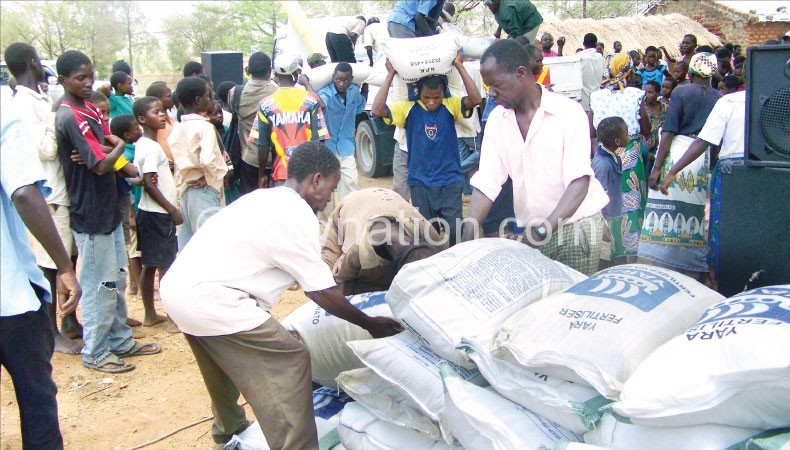Report says Fisp on track

After facing several setbacks, the Farm Input Subsidy Programme (Fisp) is now back on track with 90 percent of fertiliser distributed to the 1.5 million smallholder farmers.
In a report dated December 22 2014, the fertiliser dispatches status report indicates that 2 677 002 bags both NPK and Urea fertiliser have been loaded, representing 133 846.00 metric tonnes against the 150 000 metric tonnes needed.
The report adds that all the three warehouses of the Smallholder Farmers Fertilizer Revolving Fund (SFFRFM)—Luwinga in Mzuzu, Kanengo in Lilongwe and Chirimba in Blantyre—the stocks’ balances report on NPK fertiliser is indicating that over 74 million bags were received with over 70 million distributed. There is a balance of four million bags.
On Urea figures are indicating that there is a balance of two million bags.
On suppliers performance, the 25 suppliers have managed to distribute 100 percent except one which has made delivery of 57.86 percent, according to the report.
Ministry of Agriculture, Irrigation and Water Development Principal Secretary Erica Maganga said the ministry was pleased and urged farmers to follow good management practices for maximum productivity.
She said: “Now that the ministry has made this landmark, the big job is now with the farmers on how best they will follow instructions from their extension officers. We were lucky that the rains came in late, but we also learnt from those who criticised us on how best we can move.”
Maganga also urged farmers to plant other crops in addition to the maize. She stressed on the importance of planting early maturing crops.
“Last year the rains stopped before the maize crop was ready to flower, now the issue is that farmers need to plant early maturing crops and other crops like sweet potatoes, cassava and Irish potatoes. What we want is that if the rains do stop at some point farmers should have an alternative crop,” she said.
Some weeks ago, Fisp was marred with logistical problems which raised fears of a worst distribution season.





